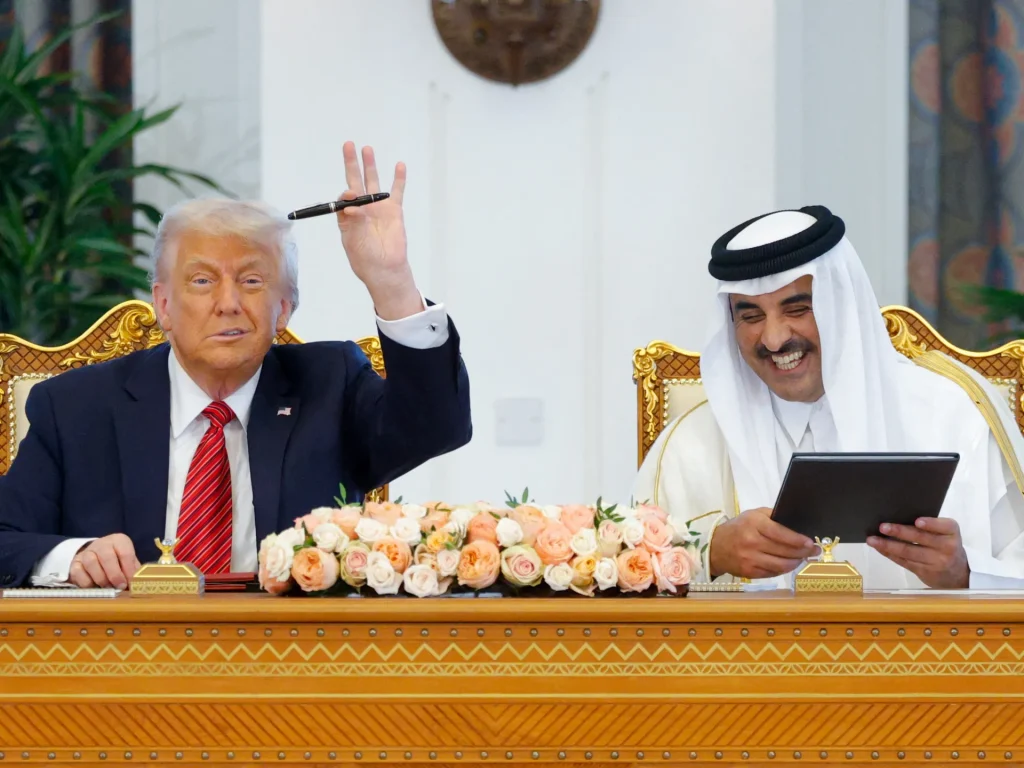Donald Trump extends US defence guarantee for Qatar

In a sweeping executive order issued on October 1st, US President Donald Trump declared that any armed assault on Qatar — whether on its territory, sovereignty, or critical infrastructure — would be treated as a direct threat to US national security.
The order further states that the United States “shall take all lawful and appropriate measures, including diplomatic, economic and, if necessary, military” to defend both U.S. and Qatari interests, and to restore stability, as reported by Arab Weekly plus agencies.
To support potential action, top defence and intelligence officials will maintain contingency plans with Qatar to enable a fast response in case of an attack.

Qatar’s foreign ministry welcomed the move, calling it an advancement in enhancing bilateral defence ties, and affirmed that Doha “welcomes the signing of the US president’s executive order recognising attacks on its territory as a threat to American peace and security.”
Observers emphasize the timing. The order is dated the same day President Trump hosted Israeli Prime Minister Benjamin Netanyahu at the White House and unveiled a new proposal for stopping the war in Gaza. On that day, Netanyahu phoned Qatar’s prime minister, conveying “deep regret” over an Israeli airstrike on Doha, and vowed it would not be repeated.
That Israeli strike — targeting suspected Hamas leadership in Doha — blindsided the Trump administration and rattled the Gulf’s confidence in the US.
Relations further frayed as Qatar and the US, jointly condemned the attack, given the lack of prior notice before the attack. Follow-up reports described how the airstrike sparked backlash from both Qatar and Washington.
By explicitly elevating Qatar to a security commitment, the new order goes beyond the prior 2022 US designation of Qatar as a key non-NATO ally, which allowed for enhanced military ties but did not guarantee U.S. intervention in the event of aggression.
Yet the order is not a binding treaty: U.S. law mandates Senate approval for collective defense agreements. Future U.S. presidents also retain the power to revoke or revise the executive order.
Some analysts view the order as a signal of a shifting American posture in the Gulf. Gulf states have begun to hedge between relying solely on the U.S. and exploring diversification — including closer ties with Beijing. As one commentary notes, the Gulf’s pivot to China appears to be less a question of “if” than “when.”
But there has been inconsistencies in the American response to regional attacks. When Iran struck U.S. bases in Qatar in June — following U.S. strikes on Iranian nuclear facilities — there was no U.S. military reaction. Likewise, in 2019, drone attacks on Saudi and Emirati oil facilities, generally attributed to Iranian proxies, elicited no response.
In parallel, regional efforts to forge joint security arrangements have faced difficulty. A proposed NATO-style defense alliance, tabled at a summit in Doha, failed to gain traction amid disagreement over leadership and command authority. That outcome underscores the enduring influence of external powers like the U.S. in Gulf security dynamics.
As Washington signals deeper commitment to Qatar, the move may reshape the Gulf’s calculations, deter future unilateral actions by neighboring states, and make the U.S.–Qatar security bond a focal point in the evolving power game of the Middle East.
The Arab Weekly plus agencies, Maghrebi.org
Want to chase the pulse of North Africa?
Subscribe to receive our FREE weekly PDF magazine










